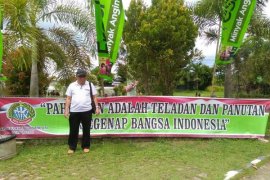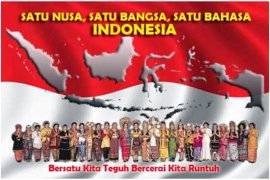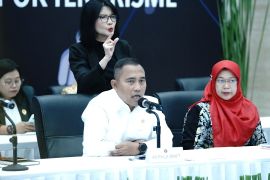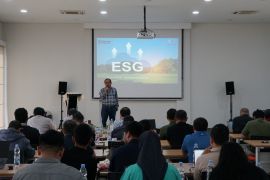The government finally issued Government Regulation in Lieu of Law known as Perppu No. 02 of 2017 on the amendment to Law No. 17 of 2013 on Community Organizations (CSOs). The Perppu issued on July 10, 2017 has a strong foundation for the Government to act decisively in disciplining CSOs that are against the Pancasila and the 1945 Constitution.
First, the Government's action is in accordance with the decision of the Constitutional Court Number 139/PUU/VII of 2009 that the President can issue Perppu on the basis of the existence of circumstances that require or urgent to solve legal problems quickly based on the Act.
Secondly, due to the inadequate rule of law, the Perppu can be issued to provide a solution in order to avoid a legal vacuum. Thirdly, the Perppu can be issued if the legal void can not be overcome by means of a new law. These three considerations are the basis of the Government to issue Perppu No. 02 Year 2017.
The issuance of the Perppu is undeniably still reaping the pros and cons, the Constitutional Law Expert, Yusril Ihza Mahendra considers that there is no crucial force that allows the President to issue the Perppu to amend the Ordinance Act. According to Yusril, the government should seek the court's approval before dismissing the CSOs as already stipulated in the current mass organizations law. Yusril who is also a Lawyer of Hizbut Tahrir Indonesia (HTI) also threw hope that the Parliament to be critical in addressing the Perppu to prevent the occurrence of arbitrariness.
Yusril's criticism, however, that regarded the Government's attitude as an arbitrary and inconsistent with the ideals of reform, basically the Government is more broadly keen to act firmly against the activities of 344,039 CSOs in Indonesia, if there are CSO activities that conflict with Pancasila and the Constitution 1945.
Not to Discredit Islamic Organizations
Minister of coordinator of politics, law and security or Menkopolhukam Wiranto also asserted that this new Perppu is not an act of abuse of the Government and is not intended to discredit Islamic Organizations or injure Muslims. Perppu is also not intended to restrict CSOs. The issuance of the Perppu is merely the eye to maintain the unity of the nation and maintain the existence of the nation, thus asking the people to accept the Government's attitude with clear, wise and mature considerations.
The Government's consideration to issue the Perppu on CSOs is basically based on the protection of the ideology of Pancasila which is final and as a proof of the State's presence to safeguard tolerance and pluralism in upholding the ideological basis of Pancasila.
The state also needs to protect the entire nation and provide a sense of security to all citizens. But there are still some parties and groups are still willing to debate the ideology of Pancasila as the foundation of the State of Indonesia.
The discussion on the basis of Pancasila is defined as the basis of the State continually strives to influence the mindset of others widely. The group continues to expand its network and strive to bring the debate to replace Pancasila as the foundation of the State ideology.
Yet long before these groups discussed to replace Pancasila as the State ideology, the Foundingfathter of this nation has devoted all forms of energy and thought and ideology and the values of the faith to conceptualize a State foundation covering all elements of the life of the nation and state of Indonesia, without prejudice Discrimination against Tribe, Religion, Race, Custom and upholding tolerance values from Sabang to Merauke.
Understanding Basic of Country is the basis for governing the implementation of the state administration in the field of ideology, politics, economic, socio-cultural, and defense and security. The Basic State is the philosophy of the State which is domiciled as the source of all sources of law. The philosophy of the State or the basis of the State becomes a way of life, a view of life for society, nation and state. The basic ideology for the State of Indonesia is Pancasila, the formula and guidance of national and state life for all Indonesian people.
The significance of the use of the five principles of Pancasila as the basis for the State of Indonesia which is on God, humanity just and civilized, Indonesian Unity, Democracy, led by the inner wisdom of deliberations or representatives, and social justice for all people Indonesiaadalah, used as a guide in life Nation and state, where every behavior of the people and the State of Indonesia must comply with Pancasila.
It is the basis for the Government as the manager of the State to regulate CSOs are still working to change or replace Pancasila as the foundation of the State of Indonesia. The target of publishing the Perppu on CBOs is not merely to dissolve HTI.
Objectives more concrete is spreading ideology problem that wanted to replace Pancasila with another ideology, be it with the concept of the State Daurah Khilafah Islamiyah through enforcement and revive the concept of the communist ideology that clearly contrasts and betray Pancasila and the 1945 Constitution.
HTI Political Propaganda
Aggressiveness of Hizbut-Tahrir inplaying political Islam propaganda to achieve the purpose of enforcement of any Daurah turns Islamiyah has been banned in several countries. Even in general Hizbut-Tahrir is banned in Central Asian Countries, which incidentally Muslim-majority countries or put Islam as the basis of the constitution.
There are at least 16 countries in the world that prohibit HTI activities among others, Jordan which is the State of origin of Hizb ut-Tahrir embryo banned on March 22, 1953 on the grounds considered threatening the sovereignty of the State and is still regarded as a forbidden organization.
Egypt banned in 1974, after it was seen as involved in a coup attempt by a group of military members and the kidnapping of a former Egyptian attache. Syria prohibited in 1998, for reasons prohibited through an extra-judicial path. Pakistan banned around 1999 as a threat to the sovereignty of the State, Uzbekistan banned about 199 because Hizb ut-Tahrir was alleged to be the mastermind of bombing in Tashkent, the capital of Uzbekistan.
Libya banned in the era of Moammar Gaddafi, because it is regarded as an organization that cause anxiety. Saudi Arabia banned in the era of King Abdul Azis, because it was considered a threat and continued to criticize the Saudi government system.
In addition, European countries such as Germany banned the activities of Hizb ut-Tahrir in January 2003, because they are considered anti-Semitism and anti-Israeli propaganda.
Russia banned in 1999, even in 2003 declared a terrorist organization. Kirgiztan banned in 2004 for being considered an extreme group. Tajikistan and Kazakhstan banned Hizb ut-Tahrir in 2005 for being involved in terrorist activities.
China banned about 2006 and dubbed it a "terrorist". Turkey banned on April 19, 2004, being considered a terrorist organization, making an open letter to the Turkish Military General to join Hizb ut-Tahrir to form the Khilafah. Bangladesh banned on October 22, 2009 for engaging militant activity and threatening peace. Malaysia banned on September 17, 2015 and even the Selangor State Fatwa Committee declared Hizbut a deviant group.
And Indonesia became the 17th State to ban Hizb ut-Tahrir, as it clearly contradicts Pancasila and the Constitution, threatening public order and endangering the integrity of the State.
The Government's firm stance in facing Anti-Pancasila mass organizations and intolerant mass organizations is a form of state assertiveness against any indication that could threaten the constitutional integrity of NKRI.
Instead of being directed by the Government as anti-religious, Neoliberalism's accomplices or even accused of Communist. In addition, the fundamental foundation to protect the nation's tolerance and pluralism is to re-ground Pancasila as the foundation and philosophy of national and state life.
The dissolution of Pancasila values because Pancasila as ideology does not contextually enter the spaces of the nation of a nation that is plural.
The implementation of Pancasila values must be applied in various facets of social life, not least in organizing should make Pancasila as the foundation and direction in building the soul of the nation To reestablish sovereignty, dignity and pride as a nation.
Therefore, any CSOs that are organizations established and formed by the community voluntarily based on the similarity of aspirations, wills, needs, interests, activities, and objectives, should be based on Pancasila and the 1945 Constitution and participate actively in national development.
------oo00oo------
*) Social and Political Observer in Cersia, Jakarta.
Regulation of Community Organization Dissolution is The Prove of State Exsistency
Kamis, 20 Juli 2017 15:29 WIB
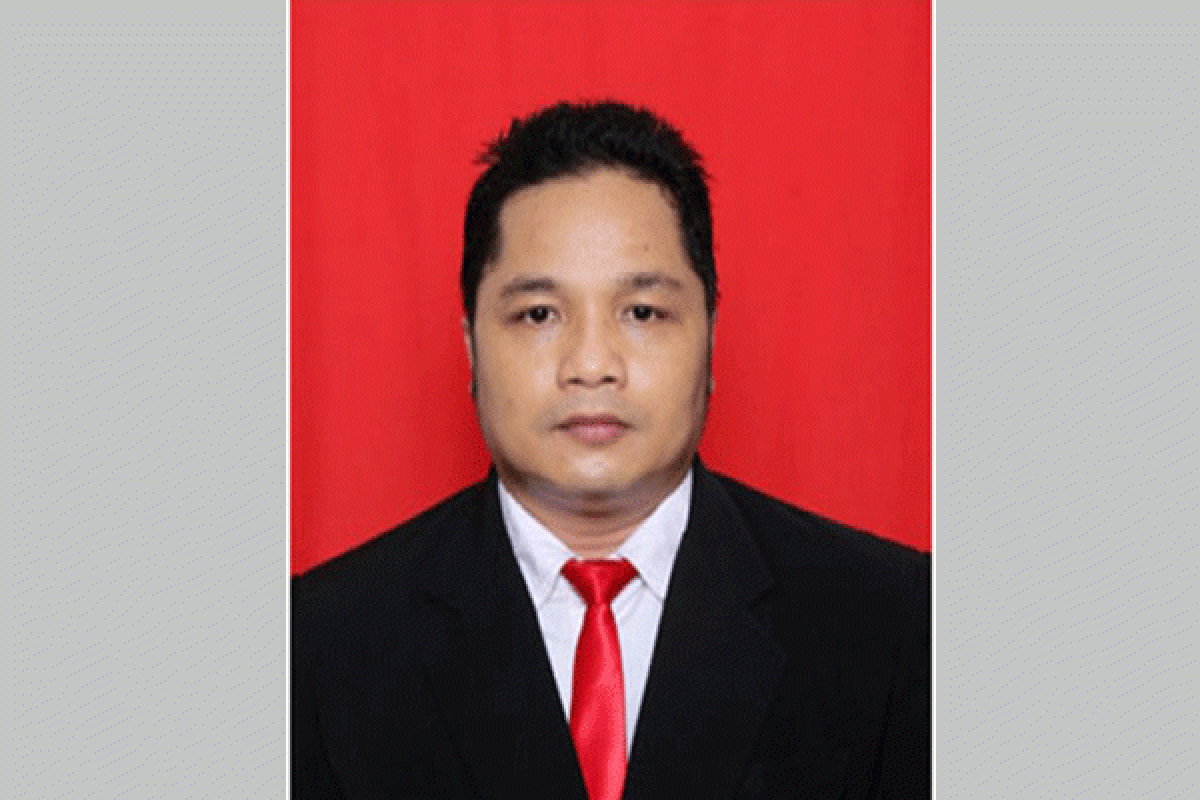
Bayu Kusuma. (ANTARA FOTO/Kiriman: Bayu Kusuma/Dok).
The implementation of Pancasila values must be applied in various facets of social life, not least in organizing should make Pancasila as the foundation and direction in building the soul of the nation To reestablish sovereignty, dignity and pride as





